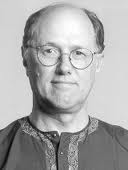Freedom of Conscience: A Core American Value by George Wolfe
In August of 2015, Americans witnessed some highly effective activism at the University of Missouri that resulted in the resignation of university president Tim Wolfe. The activists focused on President Wolfe’s inept response to racial tensions on the Columbia, Missouri campus. They included members of the football team who refused to play in a highly publicized game, a boycott that would have cost the university over $1 million.
Recently, several African-American professional football players, inspired by San Francisco 49ers quarterback Colin Kaepernick, have “taken a stand” against police shootings and brutality by kneeling for the pre-game National Anthem (rather than sitting as Kaepernick initially did). Their kneeling can’t help bring to mind the photos of activists praying during the civil rights demonstrations in the 1960’s.
Many people are offended by the NFL players’ activism. To place this in perspective however, we must remember the views of African-Americans, who fought in two world wars for the United States, only to find they were denied in their home country the very rights they were fighting for overseas.
There is an alternative composition written in 1899 by James Weldon Johnson and set to music in 1900 by John Rosamond Johnson called the “African-American National Anthem.” Entitled “Lift up your voice and sing,” it is sung annually at the Martin Luther King Jr. Memorial Service held in Muncie during Unity Week. Speakers at President Barack Obama’s first inauguration ceremony quoted lines from this hymn. It also was performed by America’s Hometown Band under the direction of Roger McConnell during an April “Relay for Peace” event 3 years ago held at Central High School.
As a professor who was politically attacked for teaching a course at Ball State University on the history and philosophy of nonviolence, I am well aware of how activism stirs up controversy as it exposes social, political and economic injustice. We tend to support activism when we agree with its message, and we often despise it when it is contrary to our political or social views. The important point here, however, is the concept of freedom of conscience.
Back in colonial times, the Puritans in the Massachusetts Bay Colony began persecuting and torturing members like Mary Dyer and Anne Hutchinson who believed following one’s personal “inner light” should supersede adherence to theological law. Dyer and Hutchinson took refuge in the neighboring colony of Rhode Island where Roger Williams and others, influenced by English Quaker leader George Fox, had immigrated.
Eventually this idea of following one’s “inner light” evolved into the principle of freedom of conscience. This freedom was guaranteed to all those who joined William Penn in the colony of Pennsylvania.
Freedom of conscience however, does not mean one can engage in demeaning behavior such as physical threats, name-calling or verbal abuse. We are obligated to honor the freedom of conscience of others even though their personal convictions may be contrary to our own cherished beliefs.
The precept behind freedom of conscience is that personal conscience supersedes everything else. If you don’t agree, then consider the alternative. Anyone of the activists I mentioned at the beginning of this article could have chosen the path of violence to vent their anger, as we saw in Dallas when a sniper killed five white police officers.
Clearly, fighting using nonviolent direct action or strategies of protest to provoke reform is much preferred to violence. We must remember that a world without war or violence is not a world without conflict. Rather it is a world where we have learned to mediate conflict and deal with it in nonviolent ways.
We are a diverse society and a nation that prides itself in freedom of speech, freedom of religion, and the right to assemble to express our views, no matter how controversial. America has a proud history of nonviolent activism that dates back to colonial times.
John F. Kennedy said “Those who make peaceful revolution impossible make violent revolution inevitable.” Let’s respect and give recognition to forms of nonviolent direct action, even when we disagree with the message. Freedom of conscience has been, and must remain, a core American value.
George Wolfe is Professor Emeritus and former director of the Ball State University Center for Peace and Conflict Studies. He also chairs the Muncie Interfaith Fellowship, is a trained mediator, and the author of The Spiritual Power of Nonviolence: Interfaith Understanding for a Future Without War.



